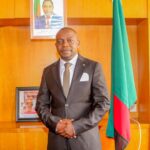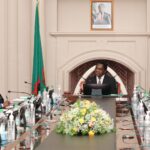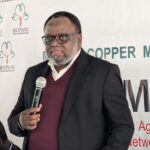The reopening of Kasenseli Gold Mine in Mwinilunga District marks a significant milestone in Zambia’s mining history and economic trajectory. Under the leadership of President Hakainde Hichilema, this revitalization of the mine signals a shift toward sustainable and inclusive economic growth, with a focus on empowering communities and fostering long-term development.
Kasenseli Gold Mine had been closed in 2021 following concerns over illegal mining, environmental degradation, and insufficient regulatory oversight. The unregulated extraction of gold caused deforestation, soil erosion, and a loss of state revenues, all of which deprived local communities of benefits. The government’s intervention to suspend operations was a necessary step to restore order, promote accountability, and ensure that mining activities could be conducted responsibly.
Now, with the mine’s reopening, the government is setting a new standard for transparency and sustainability. President Hichilema has called for the use of advanced technologies in gold extraction and processing, ensuring minimal environmental impact while enhancing operational efficiency. This forward-thinking approach addresses the historical governance issues of the mine, with the aim of positioning Kasenseli as a model for responsible mining practices in the region.
A key element of this new strategy is the inclusion of local communities and artisanal miners. Kasenseli is now set to serve as a processing hub for small-scale miners, providing them with the necessary infrastructure to refine their gold. This approach not only formalizes their activities but also ensures that they benefit from the mine’s reopening. During the reopening ceremony, President Hichilema highlighted the importance of compensating the 14 youths who originally discovered the mine, directing the Ministry of Mines to grant them mining licenses. This move reflects the government’s recognition of grassroots contributions and its commitment to fostering equitable economic growth.
“This is about empowering our young people and ensuring that their efforts are rewarded. Kasenseli Gold Mine represents an opportunity to uplift communities and drive economic development,” President Hichilema remarked. His focus on youth empowerment underscores a broader vision of transforming Zambia’s mining sector into a tool for national empowerment and prosperity.
The reopening of Kasenseli is part of a broader strategy to reinvigorate Zambia’s mining industry, particularly in the resource-rich Northwestern Province. Minister of Mines and Minerals Development, Paul Kabuswe, announced that three major copper mines in the region—Lumwana, Kansanshi, and Kalumbila—are projected to produce a combined 810,000 metric tons of copper annually. This significant output is expected to generate around 24,000 jobs, providing a much-needed economic boost to the region.
“Our focus is not just on production but also on empowering communities. The mining sector must transform lives and uplift our people,” Minister Kabuswe stated. His comments reflect the government’s commitment to not only increasing mineral production but also ensuring that local communities benefit from these activities.
President Hichilema has also emphasized the importance of adding value to Zambia’s mineral resources. At Kasenseli, this includes refining gold to a purity level of 99.9%, which will enable Zambia to capitalize on high-value exports. By establishing state-of-the-art processing facilities, the government aims to reduce reliance on raw mineral exports, strengthening Zambia’s position in the global mining market.
The reopening of Kasenseli Gold Mine is more than just a resumption of operations; it marks the beginning of a transformative chapter for Zambia. By addressing the challenges that led to the mine’s closure, embracing modernization, and empowering local stakeholders, the government is creating a mining sector that prioritizes sustainability, inclusivity, and transparency. This bold approach affirms Zambia’s commitment to leveraging its mineral wealth for the benefit of all citizens, laying the foundation for a brighter and more equitable future.






